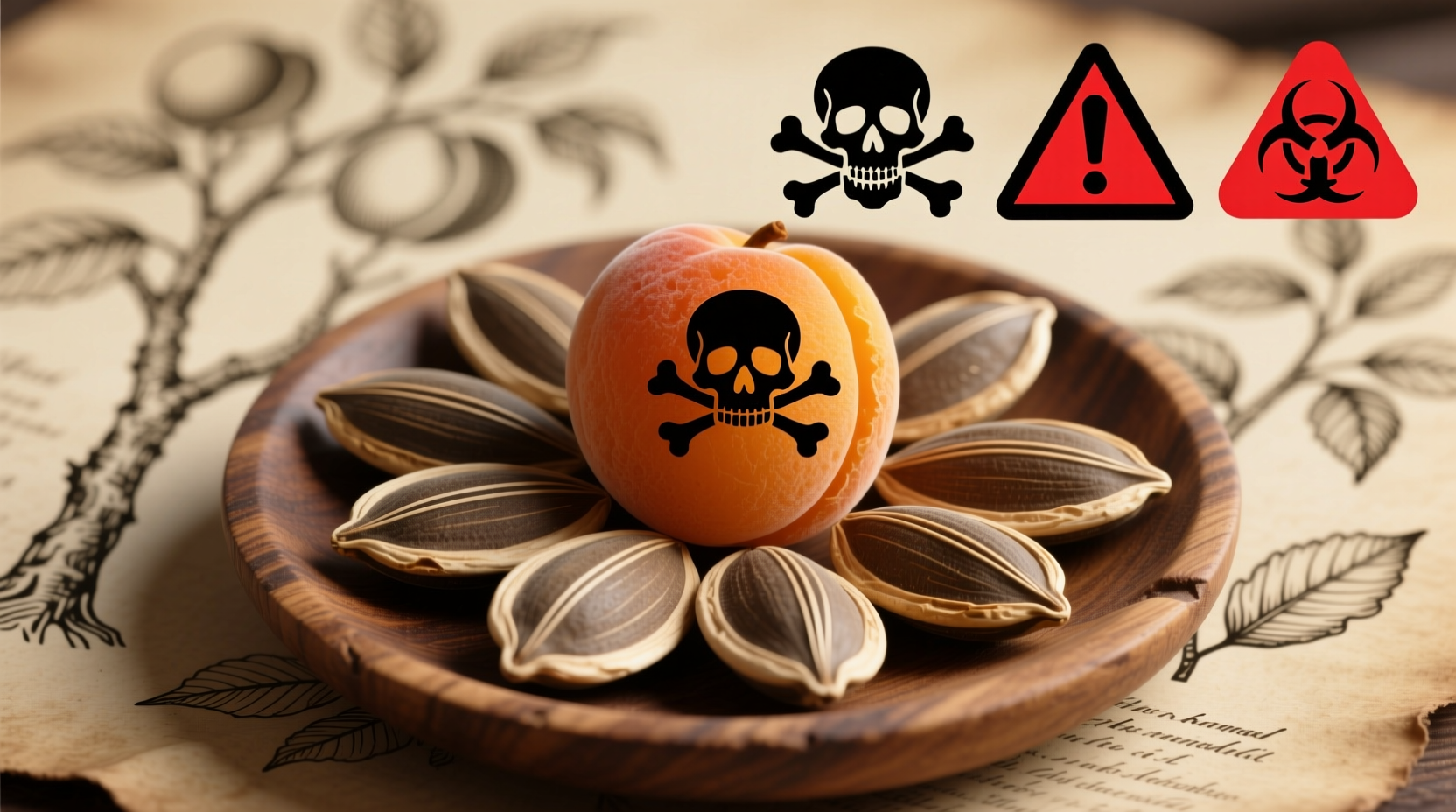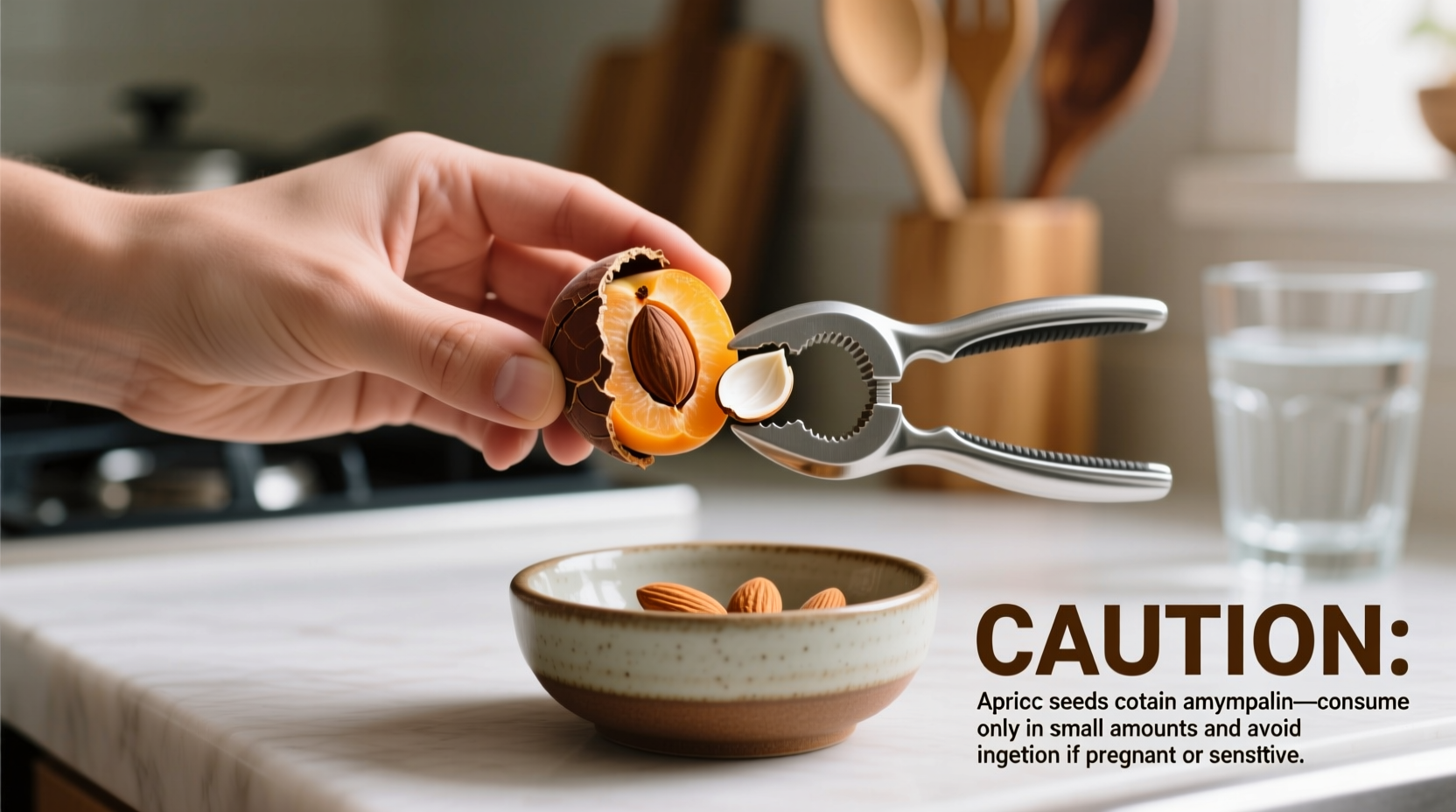Why Apricot Seed Safety Matters More Than You Think
When you search how to eat apricot seeds, you're likely seeking natural health benefits. But here's what most sources won't emphasize enough: apricot seeds contain amygdalin, which your body converts to cyanide. The European Food Safety Authority (EFSA) reports that just 3 small apricot seeds can exceed safe cyanide levels for adults, while children face risks from a single seed.
Despite historical claims about cancer-fighting properties, major health organizations universally warn against apricot seed consumption for therapeutic purposes. The U.S. Food and Drug Administration (FDA) has issued multiple warnings about laetrile (a purified form of amygdalin) due to documented cases of cyanide poisoning.
Understanding Apricot Seed Risks: What the Research Shows
Amygdalin occurs naturally in apricot seeds and other stone fruit pits. When chewed or digested, enzymes convert amygdalin to hydrogen cyanide - a potent toxin. Your body can detoxify small cyanide amounts, but the margin between 'small' and 'dangerous' is alarmingly narrow.
| Consumption Level | Cyanide Exposure | Health Impact |
|---|---|---|
| 1-2 small seeds | Below acute toxicity threshold | Generally safe for most adults |
| 3-5 small seeds | Near or exceeding safe limits | Headache, dizziness, nausea |
| 6+ small seeds | Acute toxicity range | Vomiting, rapid breathing, potential fatality |
| Children's consumption | Extremely dangerous | Life-threatening at much lower doses |
This fact comparison table reflects data from the European Food Safety Authority's 2016 risk assessment, which analyzed over 40 studies on amygdalin toxicity. The EFSA concluded that no safe consumption level exists for children, and adults should strictly limit intake.
Safe Handling Guidelines If You Choose to Consume
While health authorities recommend avoiding apricot seeds entirely, some people still choose to consume them. If you proceed despite the risks, follow these evidence-based safety protocols:
- Never exceed 1-2 small seeds daily - Larger seeds contain more amygdalin
- Always consume with food - Never on an empty stomach as this accelerates cyanide release
- Chew thoroughly but don't over-chew - Partial breakdown reduces cyanide conversion
- Avoid with vitamin C supplements - High vitamin C intake increases cyanide conversion
- Stop immediately if experiencing headache, dizziness, or nausea

Who Should Absolutely Avoid Apricot Seeds
Certain populations face significantly higher risks from even minimal apricot seed consumption:
- Pregnant or breastfeeding women - cyanide crosses placental barrier
- Children under 18 - lower body weight increases toxicity risk
- People with kidney impairment - reduced cyanide detoxification
- Those undergoing cancer treatment - potential dangerous interactions
- Individuals with enzyme deficiencies affecting cyanide metabolism
The American Cancer Society explicitly states that "there is no evidence that apricot seeds prevent or treat cancer" and notes multiple documented cases of cyanide poisoning from seed consumption.
Historical Context: The Laetrile Controversy Timeline
Understanding why apricot seeds gained popularity requires examining their controversial history:
- 1800s: Amygdalin first isolated from bitter almonds
- 1950s: Laetrile (purified amygdalin) promoted as "vitamin B17" despite not being a vitamin
- 1970s-80s: Widespread promotion as cancer treatment despite lack of evidence
- 1982: National Cancer Institute study finds no benefit for cancer patients
- 2016: EFSA establishes maximum safe intake levels based on cyanide conversion
- Present: Global health agencies maintain warnings against consumption
This timeline reflects the Centers for Disease Control and Prevention's documentation of amygdalin research history. Despite persistent alternative health claims, the scientific consensus remains clear: apricot seeds don't treat cancer and pose real poisoning risks.
Better Alternatives for Health Benefits
If you're seeking the purported benefits of apricot seeds, safer alternatives exist:
- Vitamin B17 confusion: Amygdalin isn't a vitamin - get proper B vitamins from whole foods
- Antioxidant sources: Blueberries, pecans, and artichokes provide safer antioxidant profiles
- Cancer prevention: Focus on evidence-based approaches like cruciferous vegetables
- Healthy fats: Almonds and walnuts offer beneficial fats without cyanide risks
Registered dietitians consistently recommend obtaining nutrients through diverse whole foods rather than isolated compounds with known toxicity risks.
Recognizing Cyanide Poisoning Symptoms
Knowing the warning signs could save your life or someone else's:
- Early symptoms: Headache, dizziness, nausea, rapid breathing
- Moderate exposure: Confusion, weakness, drop in blood pressure
- Severe poisoning: Seizures, loss of consciousness, respiratory failure
If you suspect cyanide poisoning from apricot seeds, seek emergency medical attention immediately and inform medical staff about the potential cyanide exposure. Time is critical with cyanide toxicity.











 浙公网安备
33010002000092号
浙公网安备
33010002000092号 浙B2-20120091-4
浙B2-20120091-4